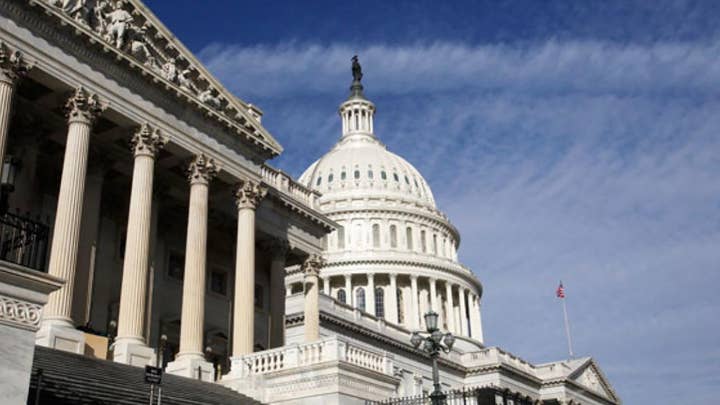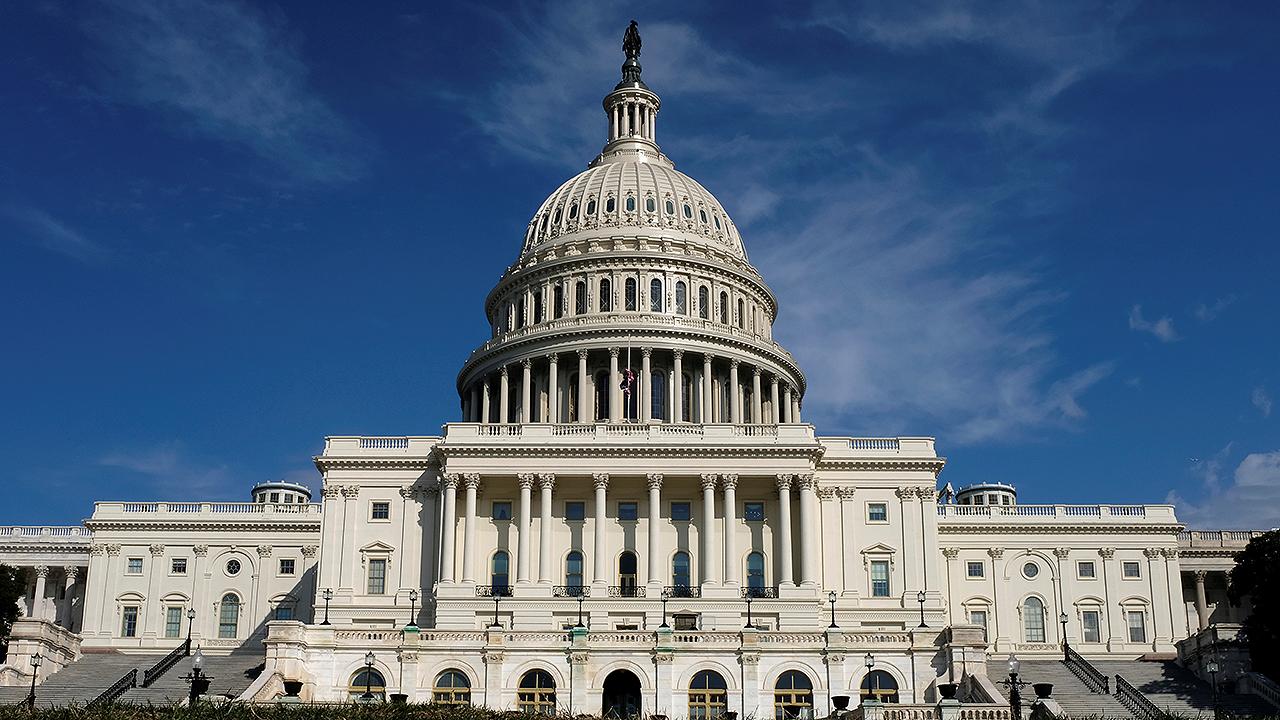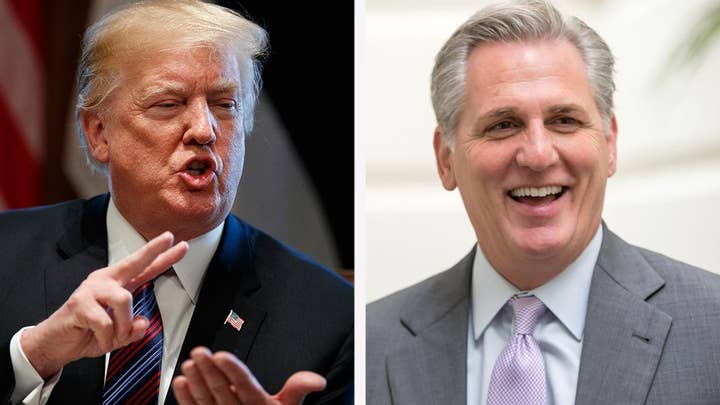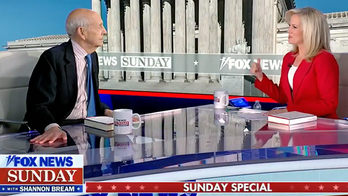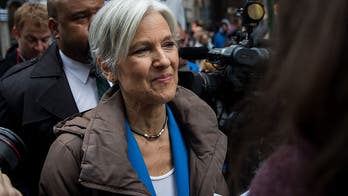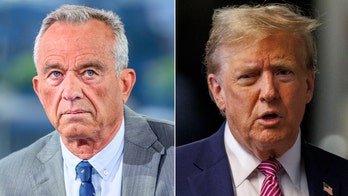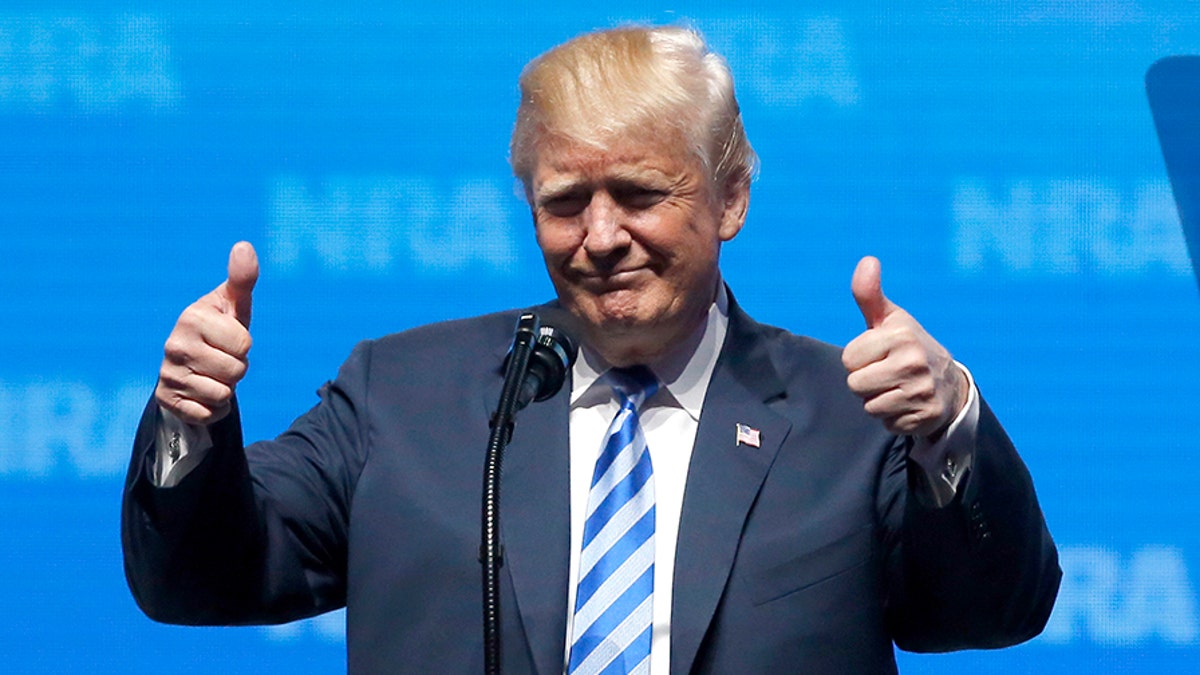
President Donald Trump spoke at the National Rifle Association annual convention in Dallas, Texas on Friday. (AP Photo/Sue Ogrocki)
The Trump White House said Monday it will send lawmakers a proposal to slash $15 billion in unused funds, leaving the $1.3 trillion spending bill unchanged.
The multibillion-dollar roster of proposed spending cuts comes from leftover funding from previous years. A senior official said President Trump feels the so-called rescission package is an important tool to eliminate wasteful spending, and this measure will be the first of several rescission packages that focus on “unobligated balances.”
The senior official said about $7 billion would come from the Children’s Health Insurance Program, or CHIP, which provides health care to kids from low-income families, though that official stressed the cuts won’t have a practical impact on the popular program.
The senior official described the proposed cuts as money that sits in an account, and is important to get off the books.
Once the White House sends the rescission package to Congress, a 45-day clock starts ticking in which the money in the accounts is frozen, giving Congress time to act.
In reviewing the accounts, Congress has the ability to reduce dollar amounts and take items off of the list. Congress cannot add things to the list or make the dollar amount larger.
The administration is trying to use its authority to prod Congress to rescind spending approved years ago, but even if the package is approved it would only have a tiny impact on the government’s budget deficit, which is on track to total more than $800 billion this year.
Some of the cuts wouldn’t affect the deficit at all since budget scorekeepers don’t give credit for rescinded money that they don’t think would have ever been spent.
More than $4 billion in cuts to a loan program designed to boost fuel-efficient, advanced-technology vehicles wouldn’t result in fewer loans since the loans are no longer being made. A total of $107 million worth of watershed restoration money from the 2013 Superstorm Sandy aid bill is going unused because local governments aren’t stepping up with matching funds. Another $252 million is left over from the 2015 fight against Ebola, which has been declared over.
Still, the cuts, if enacted by Congress, would take spending authority off the table so it couldn’t be tapped by lawmakers for other uses in the future. The catchall spending bill, for instance, contained $7 billion in cuts to CHIP that were used elsewhere to boost other programs.
“This is money that was never going to be spent,” a senior administration official said on a press call ahead of Tuesday’s submission. “The only thing it would be used for is offsets down the line.”
The White House and Tea Party lawmakers upset by the budget-busting “omnibus” bill have rallied around the plan, aiming to show that Republicans are taking on out-of-control spending. The administration said it will propose cuts to the omnibus measure later in the year.
The spending cuts are also a priority for House Majority Leader Kevin McCarthy, R-Calif., who likens them to “giving the bloated federal budget a much-needed spring cleaning.” But while the package may pass the House it faces a more difficult path — and potential procedural roadblocks — in the Senate.
McCarthy wants to succeed soon-to-retire House Speaker Paul Ryan, R-Wis., and some of his allies view the project as a way to improve his standing with fractious GOP conservatives who blocked his path to the speakership in 2015.
House Freedom Caucus Chairman Mark Meadows, R-N.C., said, “I would support it completely,” adding that “this will put pressure on the Senate to address it.”
Meadows said he believed this measure would be the first of several spending cancellation bills. He added, “To suggest that this is the closing chapter... isn’t the case.”
More pragmatic Republicans, including the senior ranks of the powerful House and Senate Appropriations committees, rebelled against the measure. They argued that it would be breaking a bipartisan budget pact just weeks after it was negotiated. In response, White House budget director Mick Mulvaney cleansed the measure of cuts to the huge omnibus bill.
Last month, Mulvaney told lawmakers the plan could have totaled $25 billion or so. Now he says he’s planning to submit several different packages of spending cuts — and it’s likely they’ll get more conservative with each new proposal.
Either way, the idea faces a challenging path in Congress — particularly the Senate, where a 51-49 GOP majority leaves little room for error even though budget rules permit rescissions measures to advance free of the threat of Democratic filibusters. But the cuts to the popular children’s health insurance program probably could still be filibustered because they are so-called mandatory programs rather than annual appropriations.
Fox News’ Chad Pergram and The Associated Press contributed to this report.
